The Big Question: Why is Resident Evil 7 such a successful reboot?
A panel of writers look at why the Resident Evil 7 reboot works so well where other established series have failed
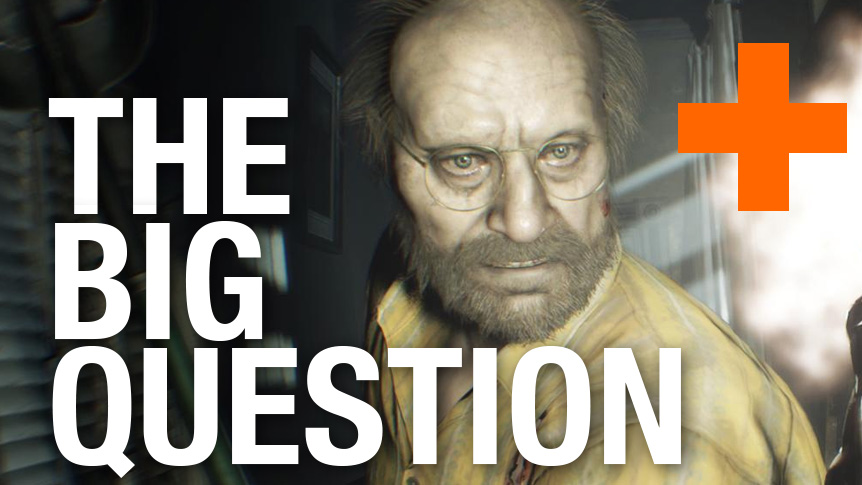
Resident Evil 7 is one of the most successful reboots in recent history, uniting the critics with a Metacritic rating of 85. The fact that this feels surprising, after the bombastic-but-boring Resident Evil 6, says everything about the decline of a series that changed the gaming landscape twice. But how does the reboot of Resi 7 get so much right? And what can other games learn from it? We tied the GamesRadar team to kitchen chairs and fed them whatever-the-hell-it-is-they-feed-you-in-Resi 7 - probably offal gumbo - until they revealed their innermost thoughts. Well, those that didn't reply via email first, that is.
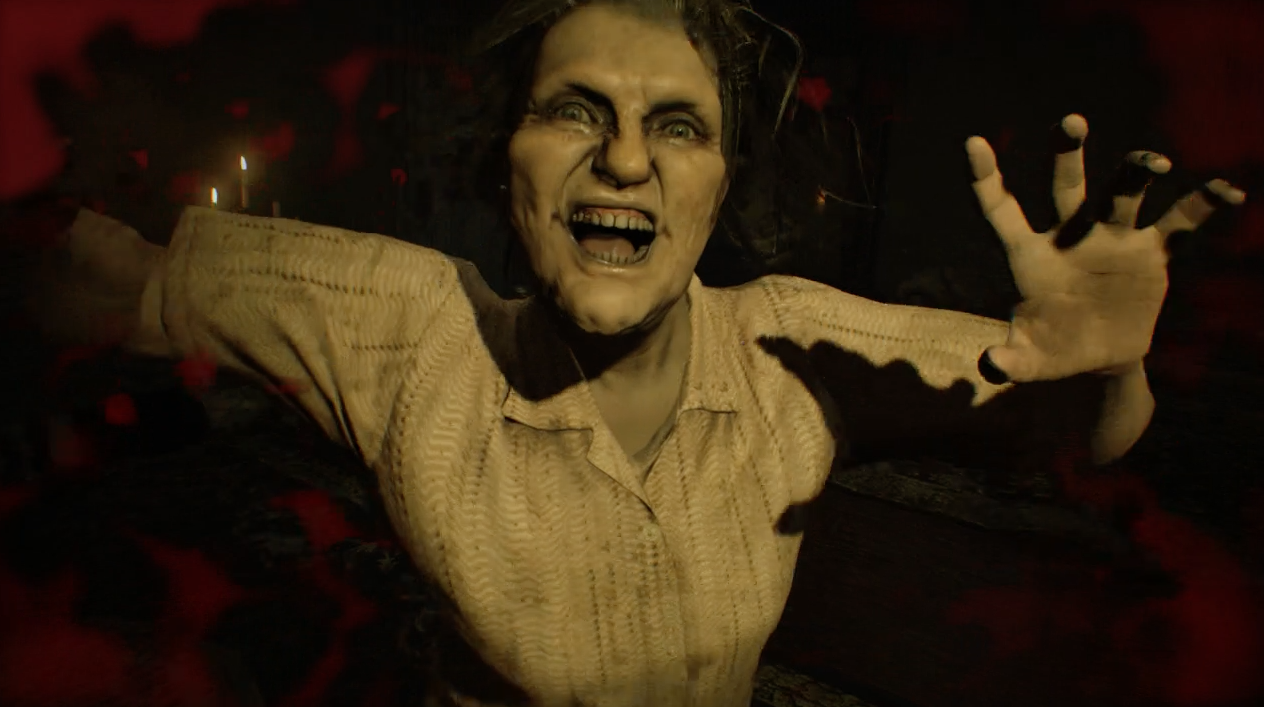
"Every step of Resi 7 is a nod to the best horror movies of the last twenty years."
Put simply, Resi 7 isn’t afraid to scare you. Survival horror has come a long way since we first walked into the original Resi mansion but, until now, Capcom hadn’t evolved with the changing scares. Yes, we’ve been afraid of running out of bullets before, but this is a new kind of fear. The first person helplessness, the filth of the Baker house, the perfect stark terror of walking down a flight of stairs into a pitch black basement and knowing that the low groans you can hear aren’t just the boiler making an odd sound. Every step of Resi 7 is a nod to the best horror movies of the last twenty years and, in turn, an evolution of the survival horror genre. There are moments where the more Resi elements jar with the game that the franchise has become but, like a stapled on hand, somehow, once the blood congeals, the blend of old and new nasty works just fine. Louise Blain
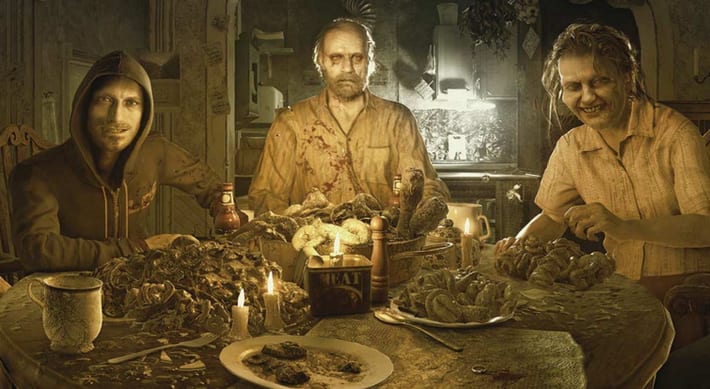
"The greatest video game sequels always build on their existing foundations."
At some point over the past 15 years, the idea of a sequel metastasized under an onslaught of focus testing and voracious executives desperate for audience expansion. This resulted in a tide of "reboots" that borrowed the names of older games but had more or less nothing to do with what made the original special in the first place and numbered follow ups that added unnecessary bloat in an attempt to appeal to every type of player. (Resident Evil has been guilty of both, with crap spinoffs like Operation Raccoon City and cloying attempts at Call of Duty-style populism in Resident Evil 5 and 6.) The greatest video game sequels always build on their existing foundations. Resident Evil 7 is a startlingly ingenious little puzzlebox, a hall of nightmares even smaller than the original trilogy's PlayStation environments. It confines and oppresses you at every opportunity, fostering a feeling of dread familiar from games like Outlast but executed with unparalleled skill and artistry. Beneath that newness and propping it up, though, are the bones of past Resident Evils; the puzzles, the resource management, the hint of campiness. It's sequel design that puts creativity ahead of dim business concerns. Anthony John Agnello
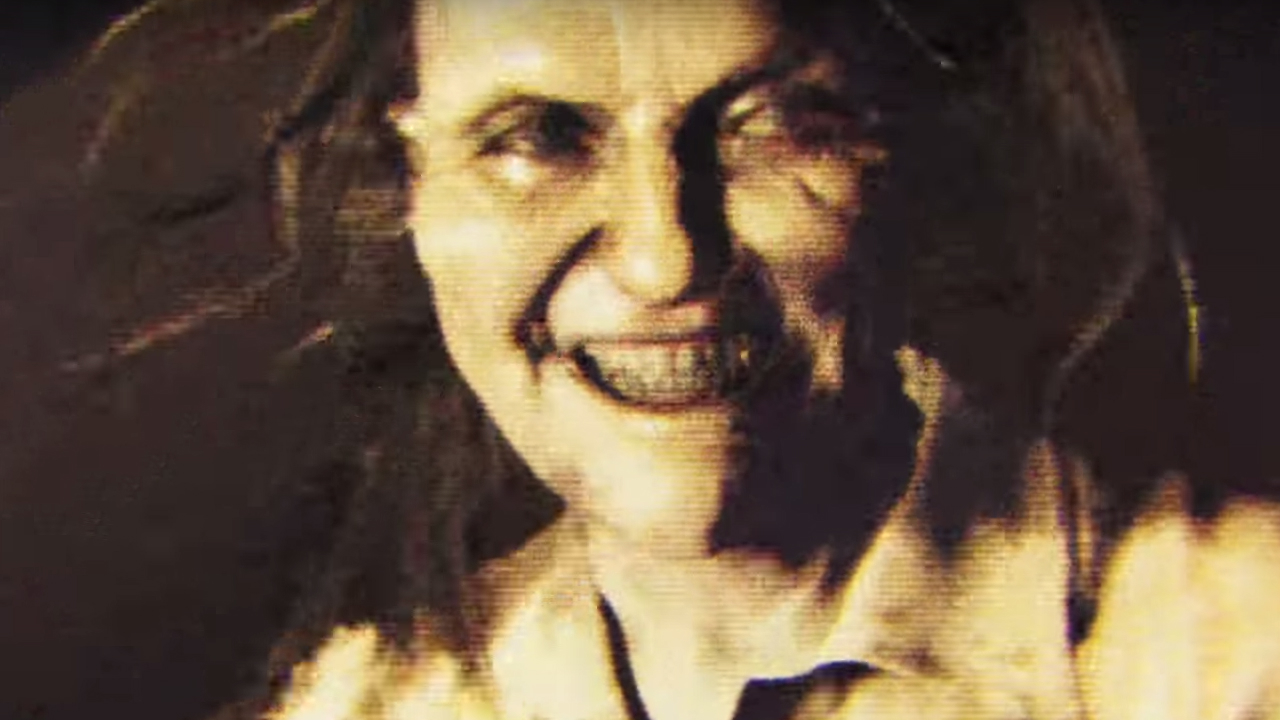
"It remains faithful to what makes a Resi game Resi without being trapped by it."
Resi 7 succeeded as a reboot because it’s a good game with or without that name attached. On the face of it so much has changed - it’s first person instead of third, it focuses on a tiny cast and small groups of enemies instead of hordes. The refresh makes it more approachable for first timers, but at the same time it remains friendly to those who know the game, with familiar mechanics and design that remind those players of what world it's in. It remains faithful to what makes a Resi game Resi without being trapped by it, which most importantly allows it to draw on more recent influences, dragging the series kicking and (mainly) screaming to meet modern tastes. Leon Hurley
"Resident Evil 7 succeeds as a reboot precisely because it isn’t a reboot at all."
For me, Resident Evil 7 succeeds as a reboot precisely because it isn’t a reboot at all. Rather, it’s quite the opposite. It’s more a refocusing and remake of the early days of Resi, with the camera simply swung in a different direction in order to modernise and immerse. A lot of long-running series lose their way through incremental tweaks, as their developers and publishers shift direction, bit by bit, to take onboard new trends and conceits, until the essence of the original is completely lost. After years spent doing exactly that, Resident Evil 7 feels like product of Capcom stepping back, looking at the original Resi’s conceits of a claustrophobic setting, economical, fight-or-flight mechanics, and a tight balance between danger and puzzles, and thinking ‘How do we make this feel current?’ And then simply stripping back all the bells and whistles, and simply re-delivering the game gameplay that made Resident Evil such a resonant hit in the first place, albeit with a new, first-person perspective creating the illusion of a massive overhaul.
When you’re playing Resi 7, just imagine that you had a camera hack that could turn it into a third-person game. What are you playing then? You’re playing the original, that’s what. And that’s why Resident Evil 7 really, really gets it right. David Houghton
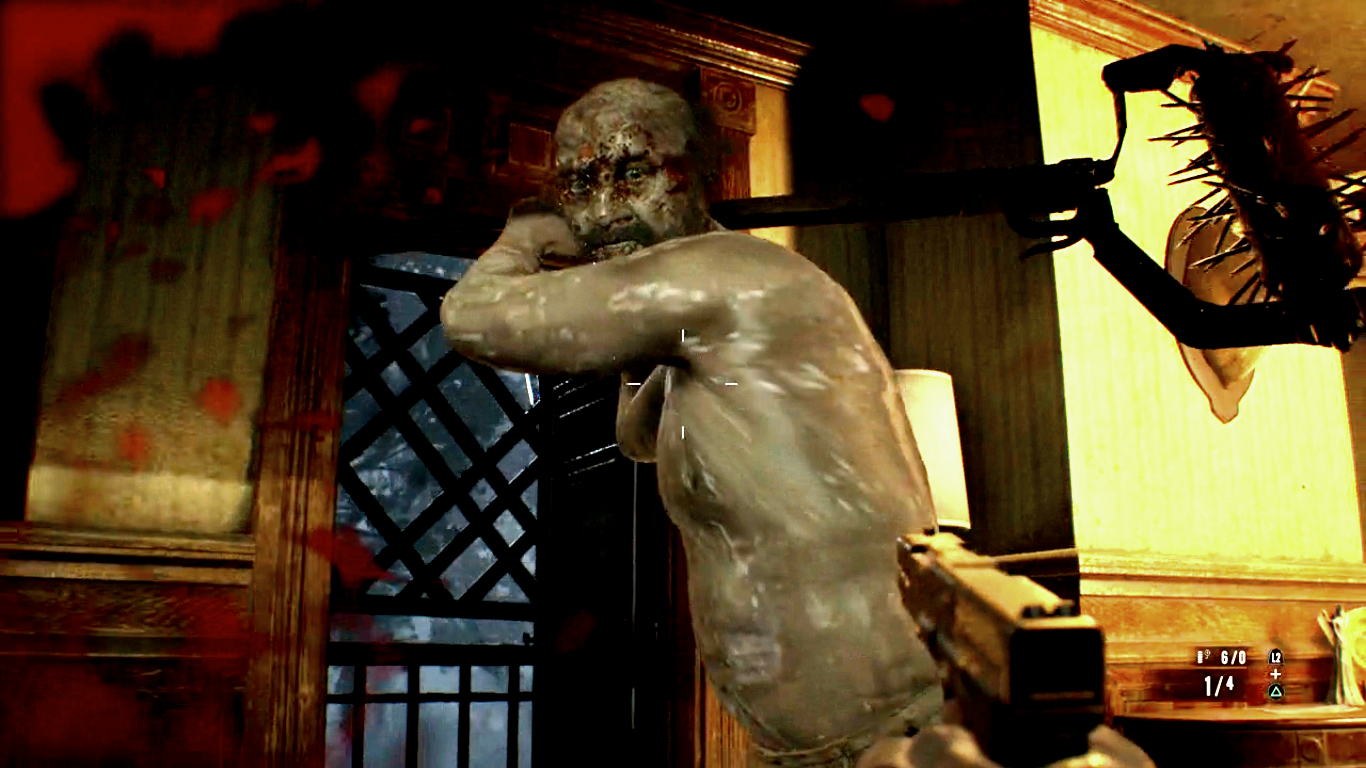
"Horror fans are smarter now. They know the tricks, they're harder to frighten."
Resident Evil 7 succeeds because while it's inspired by its past, it isn't tethered to it. It's hard to chuck the baggage of decades, because hey, that's what put you in the luxurious place of having a 7 attached to your name, but it was absolutely the right decision. Instead of saying "How do we make the next Resident Evil game," Capcom said "How do we make a good horror game?" That was the starting point. What is scary now as opposed to when the first Resident Evil came out? So much has changed since then - technology, the audience, horror itself. The first Resident Evil came out three years before The Blair Witch Project changed modern horror cinema forever. Horror fans are smarter now. They know the tricks, they're harder to frighten. Rebooting Resident Evil required stripping it down to its bones, and starting fresh with a modern sensibility, which is exactly what they did. Susan Arendt
Weekly digests, tales from the communities you love, and more
"I couldn't even play the game's opening using headphones, let alone in virtual reality."
Resident Evil 7's success – as arguably the only entry in the series to deliver menace, not just jump scares – rests in the game's opening hours, through its brusque rejection of the series' accumulated baggage. All the gameplay staples you've come to rely on, all the visual cues, tropes and 'rules', have been erased. Third-person becomes first-person. Zombie hordes become glowering shadows. Rocket launchers become clenched fists. You're being dictated to, not part of a familiar conversation. This helplessness – the core of all the best horror games – is genuinely unsettling. I couldn't even play the game's opening using headphones, let alone in virtual reality. This disorientation wipes your expectations clean, but succeed on its own terms… so when elements of the traditional Resident Evil experience are re-introduced, you embrace them like childhood memories; rather than lament why the series hasn't moved on. Many reboots fail because they cling to gaudy, familiar, symbolism, when success derives from more universal, intangible, values. Resident Evil didn't resonate because of Umbrella, the T-Virus Chris Redfield or Milla Jovovich; but broader themes such as surprise, mystery and fear. Resident Evil 7 delivers on all those counts – and is a better game than anyone dared dream, that re-invigorates an entire genre. Even if – whisper it – Hideo Kojima's terrifying curio PT pointed the way… Daniel Dawkins
The Big Question returns next Friday to debate the week's biggest talking point in games, movie, or TV from a variety of GamesRadar+ writers' perspectives.
GamesRadar+ was first founded in 1999, and since then has been dedicated to delivering video game-related news, reviews, previews, features, and more. Since late 2014, the website has been the online home of Total Film, SFX, Edge, and PLAY magazines, with comics site Newsarama joining the fold in 2020. Our aim as the global GamesRadar Staff team is to take you closer to the games, movies, TV shows, and comics that you love. We want to upgrade your downtime, and help you make the most of your time, money, and skills. We always aim to entertain, inform, and inspire through our mix of content - which includes news, reviews, features, tips, buying guides, and videos.


